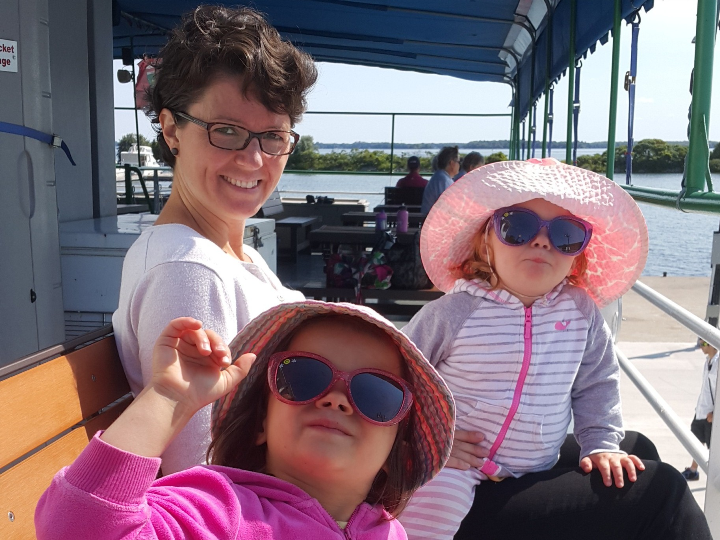At 37, Amy Peasgood loves yoga, meditation, and being a stay-at-home mom to her two daughters, ages two and four. But her experiences are unlike those of the average mother- Peasgood is a breast, skin, and thyroid cancer survivor and was recently diagnosed with a hereditary cancer predisposition syndrome, Li-Fraumeni Syndrome (LFS).
Peasgood learned she had metastatic breast cancer in February 2014. Her cancer history, coupled with the fact her mother and aunt had both passed away from the disease, made the Toronto resident an ideal candidate for genetic testing.
Still, learning she had LFS – and that her daughters had a 50 per cent of having inherited the condition – was shocking.
“It was very upsetting,” says Peasgood, noting that one of her daughters has since tested positive for LFS. “I wasn’t so much upset for myself, but for my children. Once you accept that ‘Okay, this is happening,’ then you’re just thankful for all the resources, the doctors and the [TFRI funded] research that’s occurring.”
LFS is caused by inherited mutations in a gene called TP53, one of the most frequently mutated genes in human cancers, affecting around one in 2,000 to 5,000 people. The TP53 gene plays a significant role in suppressing tumour growth, which is compromised in people with LFS, thus increasing their risk of developing many cancers at an early age.
Living with this knowledge can be hard, but the family is thankful for it.
“I’m so glad we know. Ignorance is bliss in a way, but it’s just not a responsible way to proceed,” says Peasgood. “This is giving an opportunity to my daughter that I didn’t have. So it’s a gift.”
She and her daughter are participating in TFRI’s LFS project led by Dr. David Malkin at the Hospital for Sick Children. The project is focused on developing a surveillance blood test to detect tumours in LFS patients before symptoms arise, as well as identifying drugs to prevent tumours from developing in the first place.
Peasgood is optimistic about the study, her future and the regular cancer surveillance program that is a part of her family’s management of their genetic predisposition syndrome.
“There are so many different avenues the researchers are exploring that are all so exciting,” she says.
“This is not a job for these researchers, this is a passion - and we’re the benefactors of that passion. I just feel so grateful for their energy and the way they are spending their lives. This inspires me, and I feel really grateful. Really, really grateful.”

Amy Peasgood and her family.